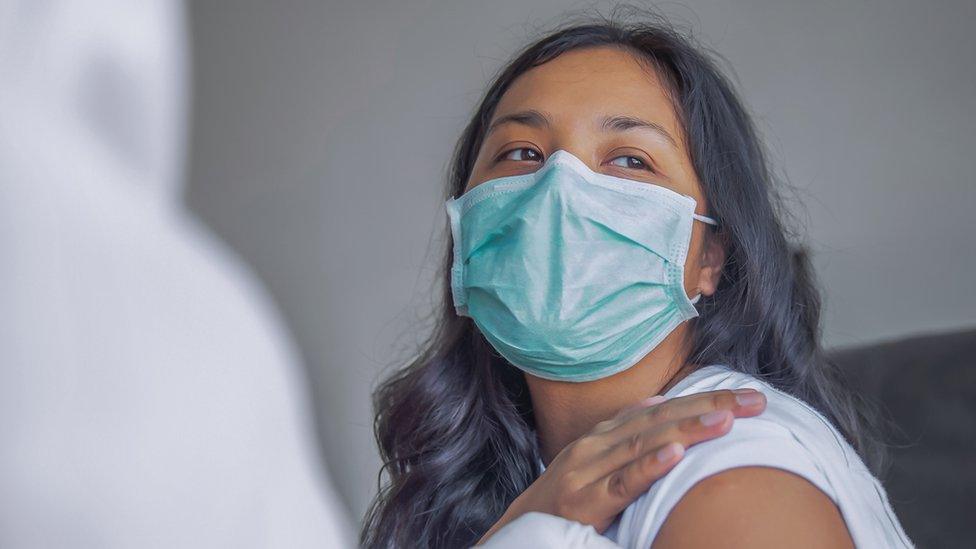Covid vaccines still effective against Delta variant
- Published
- comments

People who have had Covid-19 gain even more antibodies when fully vaccinated
Having two doses of Covid vaccine remains the best way to protect against the Delta variant, first identified in India and now dominant in the UK.
The Oxford-AstraZeneca jab, though initially less effective, offers the same high protection as the Pfizer-BioNTech after four to five months, the largest study of its kind, external suggests.
But neither is as effective as it is against the Alpha variant, responsible for most UK infections last winter.
There is insufficient data for Moderna.
But researchers believe it "almost certainly at least as good as the others".
They analysed two and a half million tests results from 743,526 participants in the UK's Covid-19 household-infection survey - led by Oxford University and the Office for National Statistics.
'Very high'
The Pfizer-BioNTech vaccine had 93% effectiveness against symptomatic infection two weeks after the second dose, compared with Oxford-AstraZeneca's 71%.
Over time, however, the Pfizer-BioNTech's effectiveness dropped while the Oxford-AstraZeneca's remained largely the same.
But there was no cause for alarm, Prof Sarah Walker, at the University of Oxford, said because "when you start very very high, you've got a long way to go".
"The World Health Organization set the bar at 50% and we're way above that," she said.
"Both of these vaccines are still doing very well against Delta."
Covid vaccine safety: How jabs are approved?
Other key points from the research include:
People who have had Covid-19 gain even more antibodies when fully vaccinated
The time between first and second doses does not affect the vaccines' effectiveness
Younger people gain more protection from vaccination than older
The study also echoes previous research showing fully vaccinated people who do become infected with the Delta variant have similar levels of the virus to those unvaccinated.
With the Alpha variant, in contrast, their viral loads were much lower.
''We don't yet know how much transmission can happen from people who get Covid-19 after being vaccinated," Prof Walker said.
"For example, they may have high levels of virus for shorter periods of time.
"They definitely have the potential to transmit as much.
"But the fact that they can have high levels of virus suggests that people who aren't yet vaccinated may not be as protected from the Delta variant as we hoped.
"This means it is essential for as many people as possible to get vaccinated - both in the UK and worldwide."

OXFORD JAB: What is the Oxford-AstraZeneca vaccine?
VACCINE: When will I get the jab?
NEW VARIANTS: How worried should we be?
COVID IMMUNITY: Can you catch it twice?
